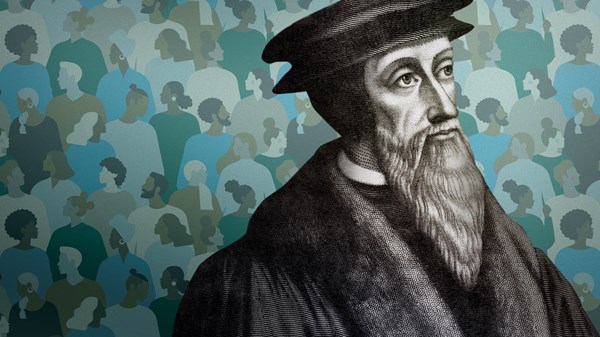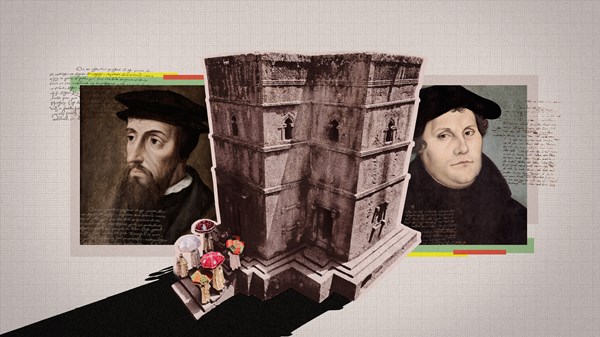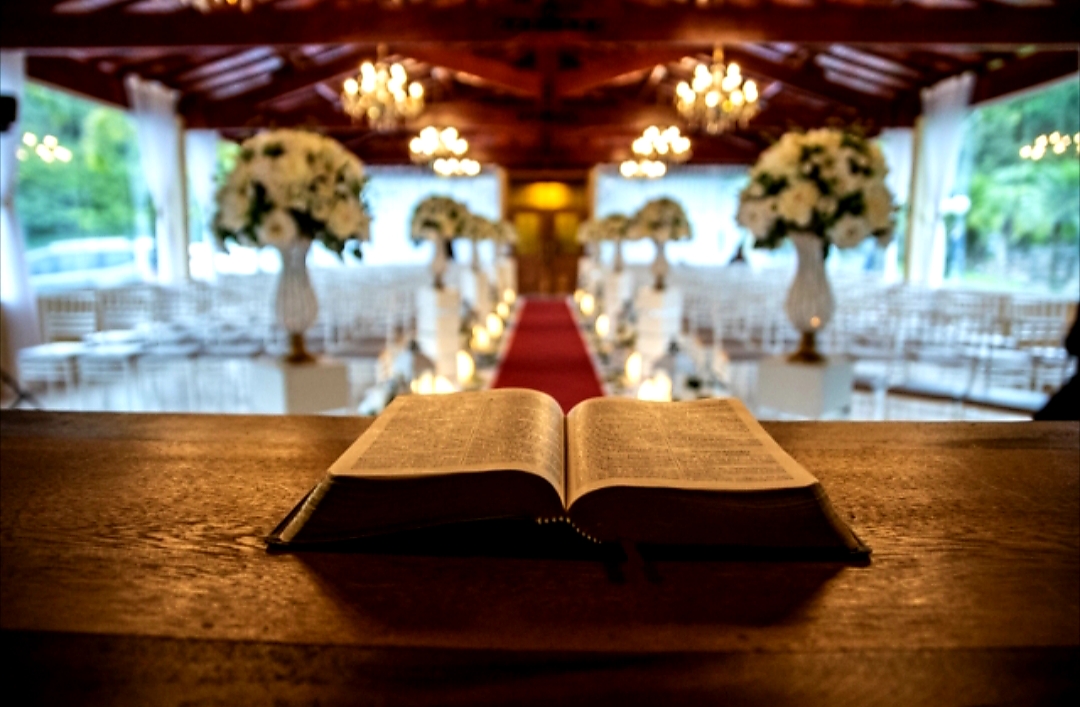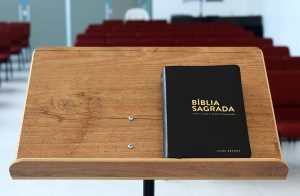Short List

Social justice is a fiercely debated concept among evangelicals today . Some believe it reflects “dangerous ideas” in secular culture or even “godless ideologies” rather than biblical Christianity. The notion is understood variously, and debate abounds as to whether Scripture ranks it as a “gospel issue.” Even the simpler term justice is subject to “competing visions.” Yet one thing is certain: Calls for justice in our society seem to only be increasing, and while some evangelicals have been struggling for justice for decades or even generations, today more and more are championing justice in some form.
Nevertheless, concerns remain for some. Is the gospel primarily about individual salvation, and do justice efforts detract from personal piety and evangelism? Just how important is justice to the Christian faith? John Calvin, a leading Protestant Reformer whose writings still influence theology and practice today, can help us think through such questions. For Calvin, justice is not a distraction from or tangential to the Christian faith but is integral to it.
While this might surprise some people today, John Calvin believed that we must act justly in order to live piously. Justice not only reveals personal piety but also is a means of living piously. What is more, justice is the meat and potatoes of what it means to love others. Many modern evangelicals don’t think along such lines. Perhaps a 16th-century French refugee who trained in law and served as a pastor can help us see more clearly the biblical portrait of the Christian life.
The Substance of the Christian Life
Many Christians rightly understand that the essence of godly living is captured in the maxim “love …
An Unsung Inspiration for the Protestant Reformation: the Ethiopian Church

There are some parts of the world that you never expect to see. A few years after the Iron Curtain fell, my parents took me out of school to visit Russia. My dad was taking pastoral study leave and was involved in the missionary outreach foundation of our denomination.
Our first days were spent in Moscow, an austere but extraordinary city that was home to soldiers, beggars, and the Bolshoi Ballet. Our overnight sleeper train from Moscow to St. Petersburg required bodyguards to protect our travel group from train robberies. Tourism was new, so we were some of the first Americans to set foot in the Kremlin and the Hermitage Museum. Statues memorializing past regimes had been toppled and moved. Tour guides were still sorting out the complexities of explaining their past in a fast-changing and sensitive present. We felt exhilarated (and overwhelmed) by the food, the language, and the customs, but most of all, we were drawn to the churches.
Stepping into St. Basil’s Cathedral in St. Petersburg’s Red Square was a lesson in Christian unity and diversity. We three American Presbyterians were surrounded by the familiar and the strange. For the first time, we saw an iconostasis—a screen of icons that divides the sanctuary from the nave—and encountered the stories of Christian faith, suffering, and beauty depicted there. Later in the trip, a visit with an embattled Protestant missionary added layers to my young adult perspective on faith. Through these and other experiences, the Eastern Orthodox branch of the church was making itself known to me in the heart of the “Third Rome,” a moniker used to signify Moscow as the heir of Byzantium (or Eastern Orthodox) Christianity. I began to realize that the .
One is accustomed to speaking of Calvin as the Reformer of Geneva. It would be more precise, perhaps, to call him the pastor of Geneva, because Calvin was above all a pastor, and his work as a reformer was simply the extension of his pastoral ministry.
In fact, Calvin was not really prepared for pastoral ministry. Everyone knows how he was pushed in to it one fine day in July, 1536, by Guillaume Farel. Why did Farel take an interest in this 27-year-old, a lawyer, humanist, and self-taught theologian? Because for some months, the cultured public with its avid taste for Protestant theology could speak of nothing else than his book Christianae religionis institutio, published in March, 1536. In this pocket-size book, the young man presented Reformation doctrine in a systematic way with great clarity and strength of conviction. Calvin was an intellectual and was going to Strasbourg to continue his studies; pastoral ministry was not his forte. Yet Farel got him to stay.
That first stay in Geneva seems to have been an unfortunate episode. The population was not prepared to submit to the demands of foreign pastors. As a result, the government drove Calvin and Farel out at Easter, 1538.
One might expect Calvin to go back to scholarly pursuits, admitting failure as a pastor. And Calvin did go on to Strasbourg. But there Martin Bucer asked him to take care of a community of French-speaking Protestant refugees and to teach at the academy. This stay in Strasbourg would turn out to be of primary importance for Calvin. Working with Bucer, he acquired what he had lacked in Geneva: experience in the pastoral ministry, the catechism, and the liturgy.
During his exile, the situation in Geneva bordered on anarchy. In 1540, an official delegation …
The Life and Times of John Calvin
Calvin came from lowly stock. His paternal grandfather was a barrel-maker and boatman, his mother’s father an innkeeper. His own father, Gerard, however, had improved his lot to become a successful lawyer, with a practice which brought him into the society of the local gentry and cathedral clergy. A side benefit from these connections fell to John, in that he was to be educated privately with the sons of the aristocratic De Montmors and was also to be given one or two chaplaincies in the cathedral, which serve as university grants.
Gerard planned a career in the church for his son. The path to this career lay through the University of Paris. There he would take the arts course and then go on to the nine years of study for the theological doctorate. After that, he would trust the De Montmors’ patronage and his own talents to reach the higher levels of preferment.
The arts course was accomplished, or nearly so, by the mid-1520s. Calvin was now an excellent scholar, a good Latinist, proficient in the philosophy taught in those days, and qualified to take up the intensive study of theology.
A Change in Plans
But suddenly all the plans fell through. Gerard changed his mind and decided that John should achieve greatness in law and not in the church. John, dutiful son that he was, acquiesced, and the next five or six years saw him at the University of Orleans, attaining some distinction in a study for which he had no love. These were years which brought him into the ideals of the Renaissance and probably into the evangelical faith as well.
The effects of the new approach to the arts and scholarship were by this time apparent all over Europe. Greek was steadily making its way as a necessity and not a mere ornament in the scholar’s equipment. …
It is hard to say when the quest began. Until he turned 29 and took the pastorate of the French refugee church in Strasbourg, he hadn’t much time to think about marriage. Besides that, he once wrote, “I shall not belong to those who are accused of attacking Rome, like the Greeks fought Troy, only to be able to take a wife.” So he was in no hurry.
But Strasbourg was a bit of a refuge for Calvin. Shortly after he had arrived in the city, he moved in with Martin and Elizabeth Bucer. Martin was the warm-hearted pastor of the church of St. Thomas in the city. Elizabeth was as hospitable as he. Their home was known as “the inn of righteousness.”
John Calvin had never seen such a happy marriage. Bucer was so pleased that he urged marriage for all his ministerial colleagues. “You ought to have a wife, Calvin,” Martin had said more than once. Philip Melanchthon once noted that John Calvin seemed uncharacteristically silent and absent-minded at the end of a day-long conference. “Well, well,” said Melanchthon, “it seems to me our theologue is thinking about a future spouse.”
By this time, Melanchthon had been married for nineteen years, and his marriage was also a happy one. Mrs. Melanchthon, who had a rollicking sense of humor, took good care of Philip in every way. His only complaint, which he undoubtedly relayed to John Calvin, was “She always thinks that I am dying of hunger unless I am stuffed like a sausage.”
Calvin, too, realized that he needed somebody to take care of him. When he moved out of the Bucer “inn,” he rented a house for himself, his brother, his stepsister and some student boarders. He found it a strain, not only on his time but also on his sanctification, to manage a boarding house and serve as a pastor of a growing .
By:https://ai.christianitytoday.com






















One Response
Thank you for your sharing. I am worried that I lack creative ideas. It is your article that makes me full of hope. Thank you. But, I have a question, can you help me? https://www.binance.info/lv/join?ref=DB40ITMB